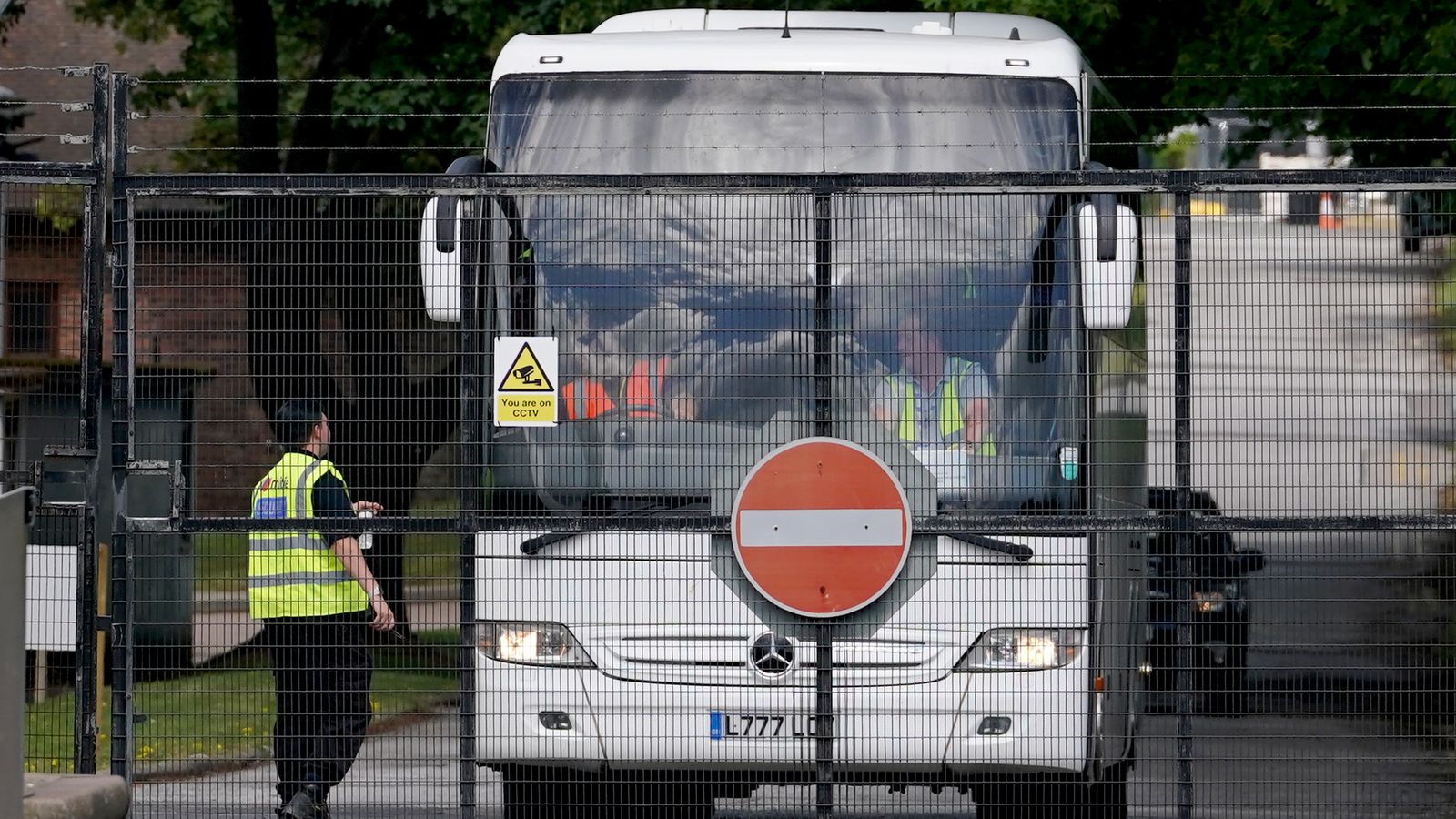The government has been forced to announce fresh amendments to its Illegal Migration Bill after its draft legislation suffered a series of defeats in the House of Lords.
A key U-turn means the removal of migrants crossing the Channel will not apply retrospectively and will instead only apply from when the Bill receives royal assent.
The Home Office said it had introduced “safeguards” following “scrutiny” in the House of Lords – where peers inflicted 20 defeats against the “stop the boats” legislation.
Politics latest: Tories accused of ‘dragging reputation of House through mud’
However, the bans on e-entry, settlement and citizenship will still apply retrospectively to those who arrived illegally on or after the bill’s introduction on 7 March.
The Home Office said measures will be put in place to ensure the list of definitions of “serious and reversible harm” cannot be amended by secondary legislation.
Another change means the first-tier tribunal can grant immigration bail after eight days to unaccompanied children detained for the purpose of removal, down from the current proposed 28 days.
Missing vessel carrying 200 migrants may have been found near Gran Canaria, says Spanish rescue service
Migrant crossings: Highest number of people make dangerous Channel journey in a single day so far this year
Rishi Sunak has not seen ‘rejected’ Home Office emergency migration brake plans, No 10 says
A further amendment means the government will keep the current rules on the detention of pregnant women, meaning they can only be detained for a maximum of 72 hours – though this can be extended to seven days on the authorisation of a minister.
Home Secretary Suella Braverman said: “This Bill forms a crucial part of our action to stop the boats and ensure people do not risk their lives by making illegal and unnecessary journeys to the UK.
“Today’s amendments will help this crucial legislation pass through Parliament swiftly, whilst continuing to send a clear message that the exploitation of children and vulnerable people, used by criminals and ferried across the Channel, cannot continue.”
Please use Chrome browser for a more accessible video player
Government expected to seek to overturn changes
The upper chamber had already demanded other revisions including modern slavery safeguards, a bar on backdating deportations and asylum help for unaccompanied children.
The government is expected to seek to overturn many of the called-for changes to the Bill, which is central to Prime Minister Rishi Sunak’s “stop the boats” pledge – one of five key commitments for his leadership.
It could see a prolonged stand-off between peers and the government during so-called parliamentary ping-pong, which refers to the to-and-fro of amendments to Bills between the House of Commons and the House of Lords
Be the first to get Breaking News
Install the Sky News app for free
Over the weekend, former home secretary Priti Patel tweeted to say: “Stopping the boats is much harder than the Govt thought it would be.”
She added: “Wrecking amendments are often the result of badly drafted legislation.”
Click to subscribe to the Sky News Daily wherever you get your podcasts
More than a thousand cross Channel in three days
It comes after Downing Street said the number of people crossing the Channel in small boats was “too large” after more than a thousand made the risky voyage in the last three days.
Some 686 were detected on Friday – the highest daily total this year – followed by 384 on Saturday and 269 on Sunday, with crossings continuing on Monday. The provisional total for 2023 so far is around 4% lower than this time last year, when around 13,200 crossings had been recorded.
Efforts to house asylum seekers on a barge in Portland, Dorset, have also been delayed, with the Bibby Stockholm vessel still in Cornwall where it had been undergoing refurbishment work.
Meanwhile, the government’s policy of sending some asylum seekers to Rwanda is the subject of a legal battle which is set to reach the Supreme Court.








